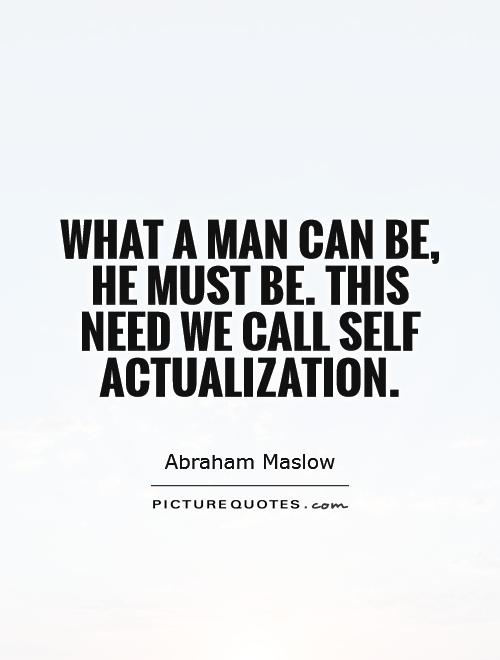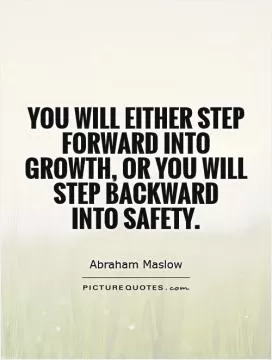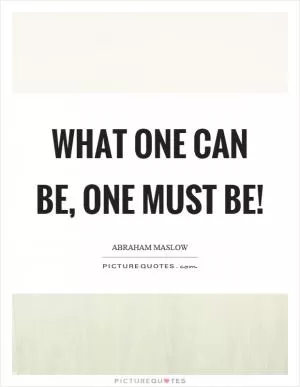What a man can be, he must be. This need we call self actualization

What a man can be, he must be. This need we call self actualization
Abraham Maslow, a renowned psychologist, introduced the concept of self-actualization as the highest level of psychological development in his hierarchy of needs theory. According to Maslow, self-actualization is the realization of one's full potential and the desire to become everything that one is capable of becoming. He believed that every individual has the innate drive to achieve self-actualization and fulfill their unique talents and abilities.Maslow described self-actualization as the need to be good, to be fully alive, and to find meaning and purpose in life. He believed that self-actualized individuals are self-aware, independent, creative, and have a strong sense of morality and ethics. They are motivated by personal growth and self-improvement rather than external rewards or validation from others.
“What a man can be, he must be. This need we call self-actualization” encapsulates Maslow's belief that individuals have a responsibility to strive for self-actualization and become the best version of themselves. He argued that failing to pursue self-actualization can lead to feelings of emptiness, dissatisfaction, and a lack of fulfillment in life.
Self-actualization is a continuous process of personal growth and self-discovery. It involves setting goals, overcoming challenges, and pushing oneself beyond one's comfort zone. Self-actualized individuals are constantly seeking new experiences, learning opportunities, and ways to expand their knowledge and skills.
Maslow's theory of self-actualization has had a profound impact on the field of psychology and personal development. It has inspired countless individuals to pursue their passions, follow their dreams, and live authentically. By embracing the concept of self-actualization, individuals can unlock their full potential, achieve personal fulfillment, and lead a more meaningful and purposeful life.












 Friendship Quotes
Friendship Quotes Love Quotes
Love Quotes Life Quotes
Life Quotes Funny Quotes
Funny Quotes Motivational Quotes
Motivational Quotes Inspirational Quotes
Inspirational Quotes